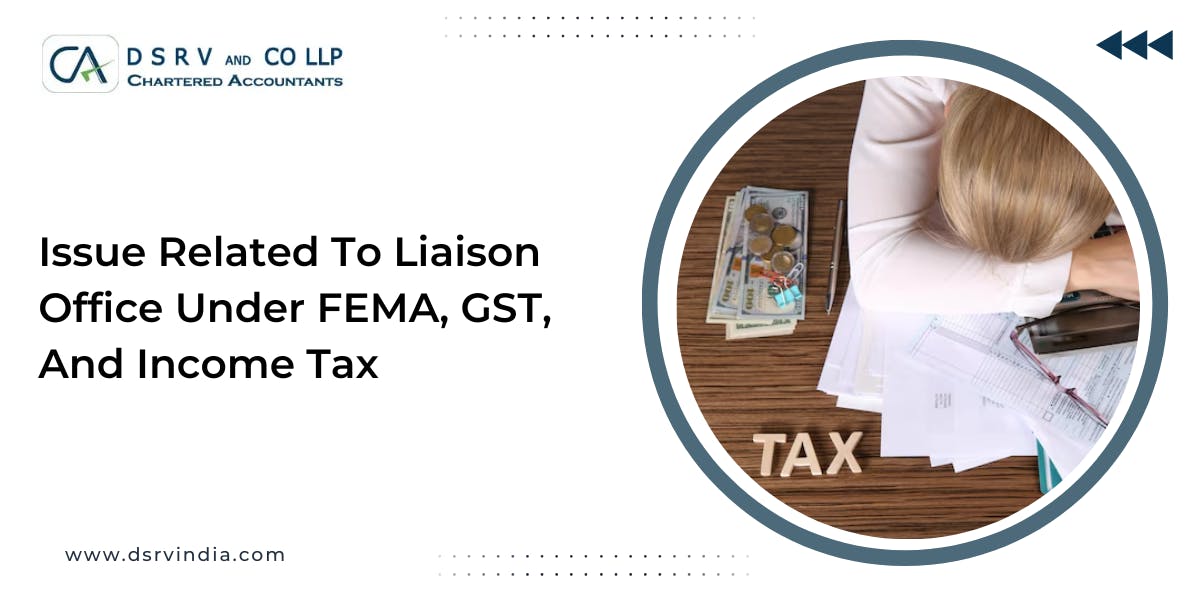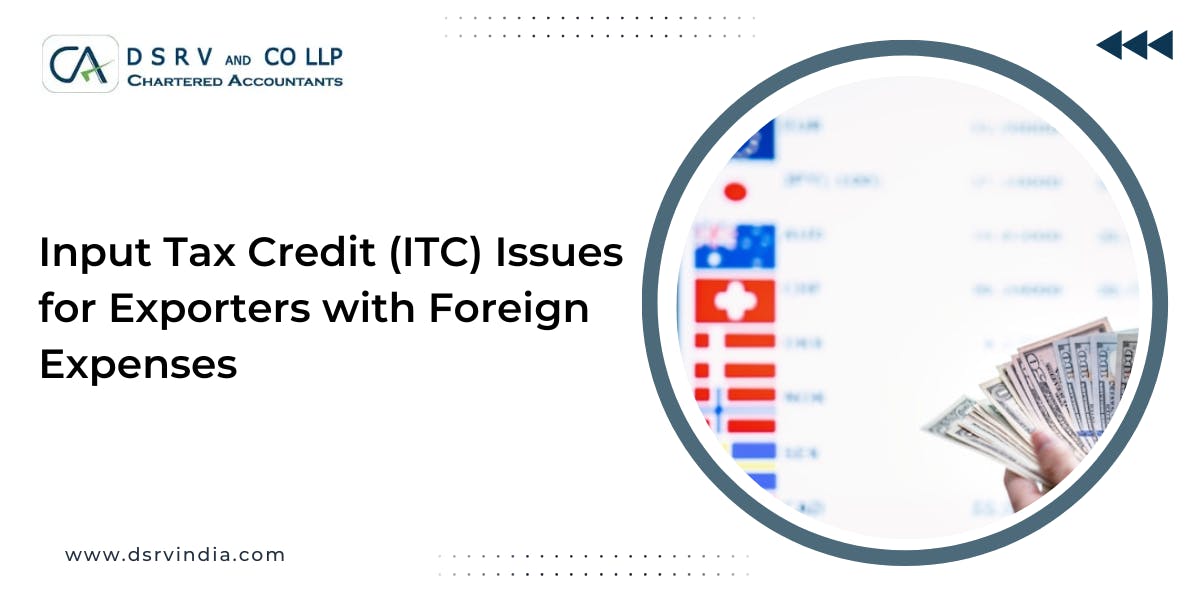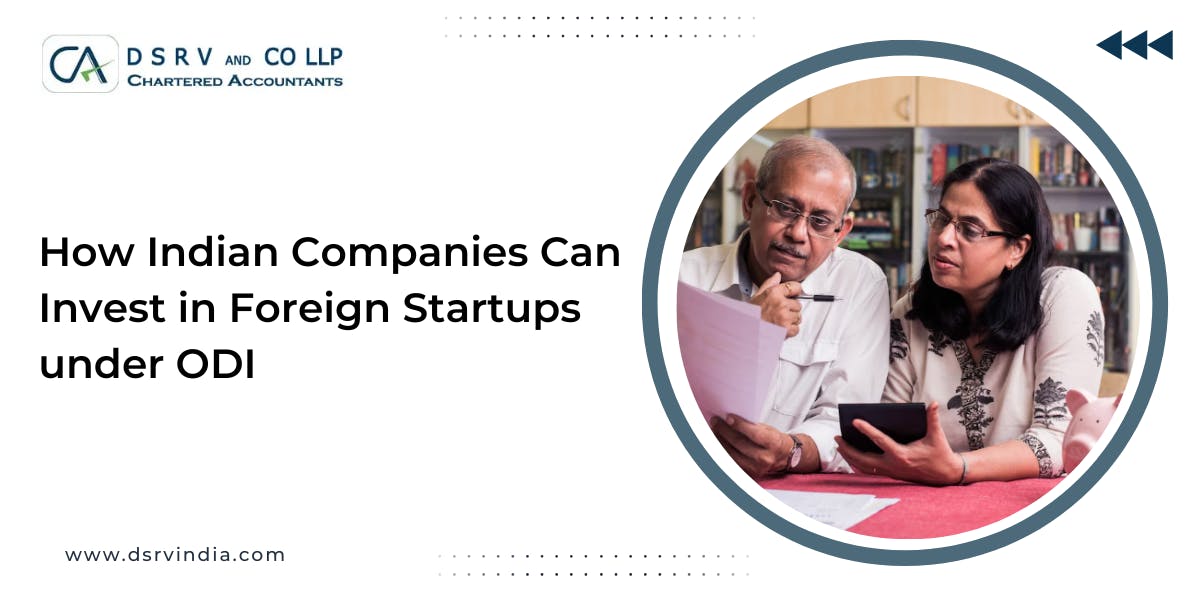The consequences of misunderstanding or misapplying these regulations can be severe, ranging from hefty fines to potential legal action. However, there is no need to fear. This comprehensive guide is here to demystify the key issues related to Liaison Offices under FEMA, GST, and Income Tax regimes. We'll break down the complexities, highlight the challenges, and offer practical solutions on cross border transactions to ensure your Liaison Office stays on the right side of the law.
In this blog post, we will start off with a clear understanding of Liaison Offices in India. We will then delve deep into the specific regulations under FEMA compliance, the GST implications, and the Income Tax aspects. Along the way, we will identify the key challenges of such complex regulations, discuss compliance burdens on foreign companies, and wrap up the blog with best practices and recommendations to keep your Liaison Office running smoothly. Let's dive in and turn these regulatory headaches into manageable tasks!
Understanding Liaison Offices in India
A Liaison Office, also known as a Representative Office, serves as a communication bridge between a foreign company and its Indian business partners or potential customers. It acts as a preliminary step for foreign entities to explore and understand the Indian market without engaging in direct commercial activities.
The primary purposes of a Liaison Office include:
- Market research
- Promoting brand awareness
- Gathering information about potential business opportunities
- Facilitating communication between the parent company and Indian businesses
Read This Blog For More Details: How to Set Up a Liaison Office in India – Step By Step Process
Liaison Offices are particularly useful for:
- Foreign companies considering entering the Indian market
- Businesses seeking to establish relationships with Indian partners
- Organisations conducting market research before full-scale operations
It is important to note that Liaison Offices operate under strict regulations set by the Reserve Bank of India (RBI) and are subject to various compliance requirements under FEMA, GST, and Income Tax laws. While they offer a low-risk entry strategy, they also come with limitations on permissible activities, making it crucial for foreign entities to understand the regulatory landscape before establishing a Liaison Office in India.
Recommended: How To Respond To Income Tax Notice: A Complete Guide
FEMA Regulations for Liaison Offices
The Foreign Exchange Management Act (FEMA) regulates foreign entities operating in India, including Liaison Offices. LOs must obtain approval from the RBI (Reserve Bank of India) before starting operations.
Key Compliance Issues Under FEMA
1. Eligibility criteria for setting up a Liaison Office
To establish a Liaison Office in India, foreign entities must meet specific eligibility criteria set by the Reserve Bank of India (RBI) under FEMA regulations. These criteria ensure that only reputable and financially stable companies can operate in the country.
Key eligibility requirements include:
- Track record: The foreign entity should have a profitable track record in its home country for at least three years.
- Net worth: The company must have a minimum net worth of USD 50,000 or its equivalent.
- Regulatory compliance: The entity should be duly registered or incorporated in its home country.
Here's a breakdown of the eligibility criteria:
2. Application process and required documentation
The application process for setting up a Liaison Office involves several steps and requires thorough documentation. Foreign entities must submit their applications to the RBI through an Authorised Dealer Category-I bank.
Required documents typically include:
- Form FNC
- Copy of Certificate of Incorporation/Registration
- Latest Audited Balance Sheet of the applicant entity
- Bankers' Report from the applicant's bank in the home country
3. Permitted activities and restrictions
Liaison Offices in India are subject to strict regulations regarding their permitted activities. These offices are primarily meant for:
- Representing the parent company
- Promoting export/import from/to India
- Promoting technical/financial collaborations
- Acting as a communication channel
Restrictions include:
- No commercial, trading, or industrial activities
- No revenue generation in India
- No direct or indirect billing for services
4.. Reporting requirements under FEMA
Liaison Offices must adhere to specific reporting requirements to ensure compliance with FEMA regulations. These include:
- Annual Activity Certificate (AAC) submission
- Filing of annual return on Foreign Liabilities and Assets (FLA)
- Reporting any changes in office location or contact details
Compliance with these regulations is crucial for maintaining the Liaison Office's legal status in India.
GST Implications for Liaison Offices
Are Liaison Offices Liable to Register Under GST?
GST applicability to Liaison Offices has been a highly debated issue in India.
Common GST Issues Faced by LOs
1. GST registration requirements
Liaison Offices (LOs) in India face unique challenges when it comes to Goods and Services Tax (GST) registration. To receive professional guidance on GST registration in Gurgaon, reach out to the top GST consultant in Gurgaon. Unlike regular businesses, LOs are not engaged in commercial activities, which raises questions about their GST obligations. Here's a breakdown of the key points:
- LOs are generally not required to obtain GST registration
- Exceptions may apply if the LO engages in any taxable supply of goods or services
- Registration may be necessary if the LO's activities exceed the scope of permitted functions
2. Taxability of services provided by Liaison Offices
The services provided by LOs are typically not considered taxable under GST. However, it's crucial to understand the fine line between permissible activities and those that might attract GST liability:
Permitted activities (non-taxable):
- Market research
- Promoting export/import from/to India
- Representing the parent company
Activities that may attract GST:
- Providing any form of consultancy
- Engaging in commercial transactions
- Charging fees for services rendered
3. Input tax credit considerations
Given that LOs are generally not engaged in taxable activities, they face limitations regarding input tax credit (ITC):
- LOs are typically not eligible to claim ITC on goods and services procured
- Any GST paid on inputs becomes a cost for the LO
- Careful management of expenses is crucial to minimize GST impact
4. Compliance obligations under GST
While LOs may not have extensive GST obligations, they still need to be aware of certain compliance requirements:
- Maintaining proper records of activities and transactions
- Ensuring activities remain within the permitted scope
- Regular assessment of operations to determine if GST registration becomes necessary
- Seeking professional advice for complex GST-related issues
Understanding these GST implications is crucial for LOs to operate effectively in India while remaining compliant with tax regulations.
Income Tax Aspects of Liaison Offices
1. Permanent Establishment (PE) considerations
When it comes to income tax aspects of Liaison Offices (LOs) in India, understanding Permanent Establishment (PE) considerations is crucial. LOs generally do not create a PE, as they are not permitted to engage in commercial activities. However, certain activities may trigger PE status:
- Exceeding permitted activities
- Conducting business operations
- Concluding contracts on behalf of the foreign entity
2. Tax liability assessment for Liaison Offices
LOs are typically not subject to income tax in India due to their non-commercial nature. However, tax authorities may scrutinize LO activities to ensure compliance:
- Regular audits of LO operations
- Review of financial statements
- Assessment of activities against permitted scope
3. Transfer Pricing Implications
While LOs are not supposed to engage in commercial activities, transfer pricing considerations may arise:
- Reimbursement of expenses to parent company
- Allocation of costs between LO and parent entity
- Arm's length principle application for any transactions
4. Withholding tax obligations
LOs may have withholding tax obligations for certain payments:
- Salaries to employees
- Rent payments
- Professional fees to consultants
It's crucial for LOs to maintain proper documentation and comply with withholding tax requirements to avoid penalties and ensure smooth operations in India.
Key Compliance Challenges for Liaison Offices
Issues of Establishing A Liaison Office in India
If you are an entrepreneur, then you must be aware of the common struggles relating to setting up an office. The primary issue of setting up a liaison office is the lengthy process. Let's take a look at steps needed to be fulfilled after RBI approves your request to set up a liaison office:
- Submit a ROC Application for “Certificate of Establishment of Place of Business in India”
- Ensure you apply for your PAN card at the Income Tax Department.
- Remember to apply for the Tax Collection/Deduction Account Number with Income Tax Department in India.
- To obtain your account number, make sure to open a bank account
- Register under the Shop and Establishment Act
- Register under Professional Tax to meet compliance standards as set by the Indian government.
- Acquire an Import Export Code
Read More: Cross-Border Transactions And Tax Controversies in India
Best Practices for Ensuring Compliance
✅ Maintain transparent financial records & document all transactions
✅ Ensure FEMA & RBI reporting is up to date
✅ Consult legal & tax professionals to mitigate GST & Income Tax risks
✅ Avoid signing contracts or making financial commitments in India
Conclusion: Navigating Compliance Challenges for Liaison Offices
A Liaison Office is a great entry point for foreign businesses in India, but it comes with strict regulatory restrictions under FEMA, GST, and Income Tax laws. While FEMA restricts LOs from generating revenue & mandates RBI approvals, GST applicability remains debatable. Moreover, Income Tax risks include PE classification, making the global income taxable. To avoid penalties and legal scrutiny, Liaison Offices must maintain strict compliance and seek expert guidance.











